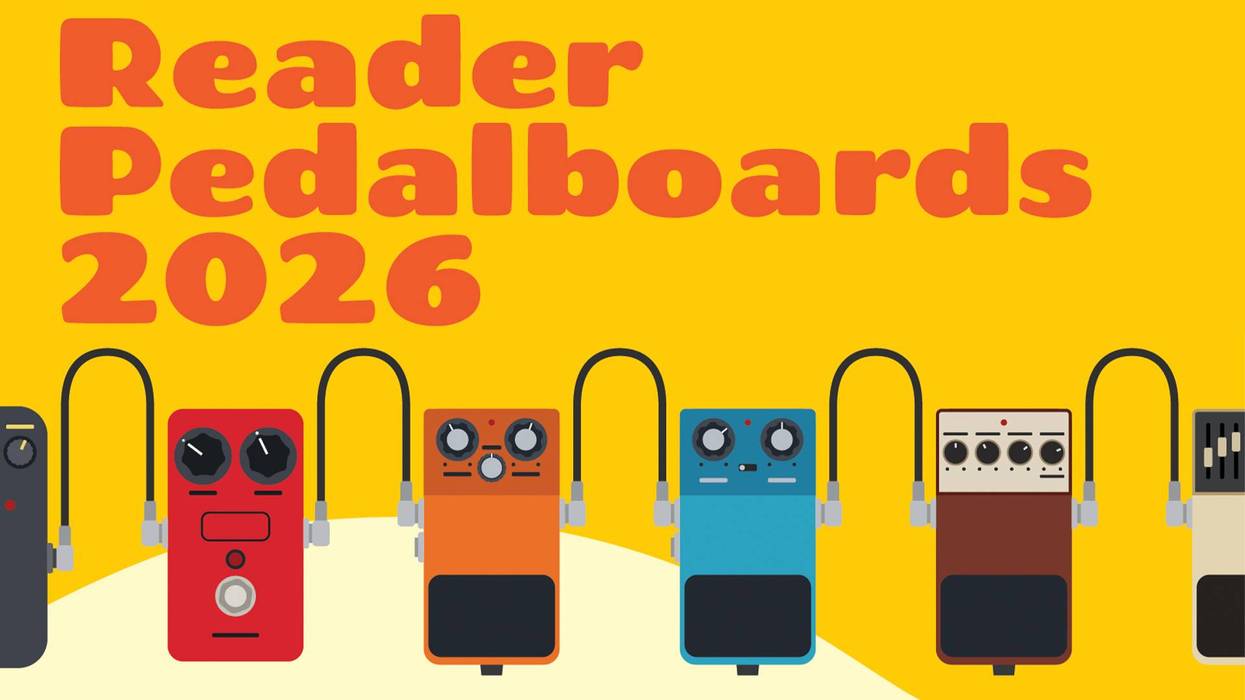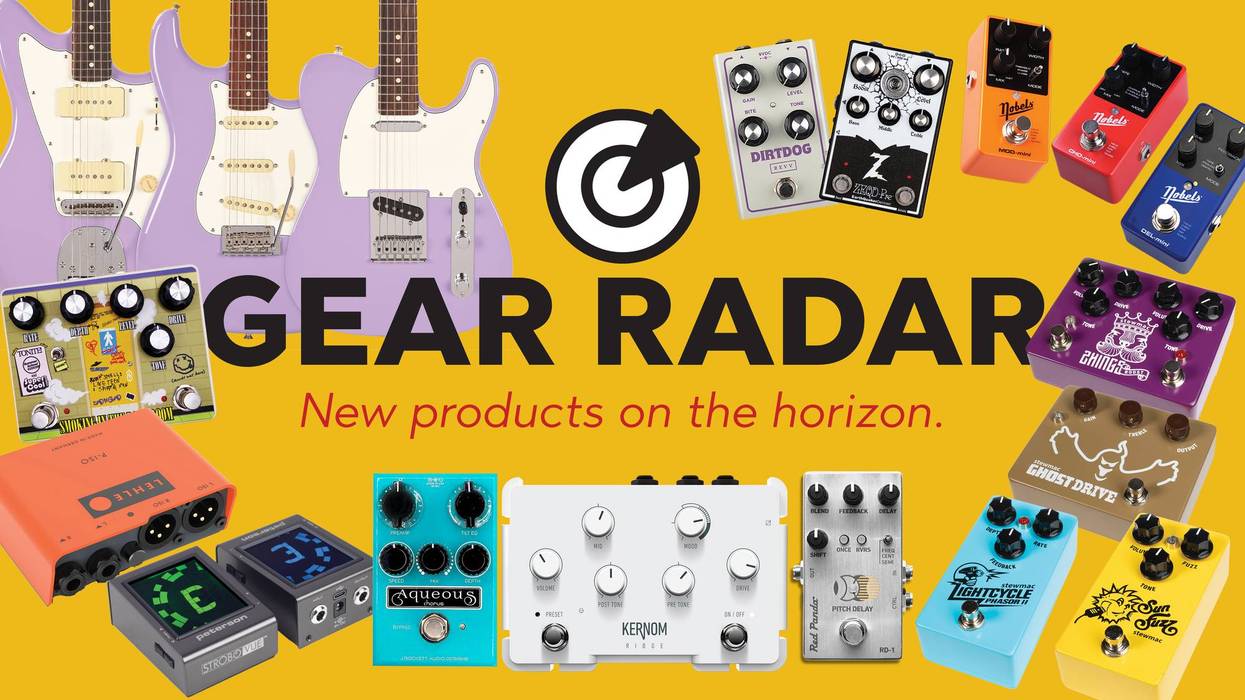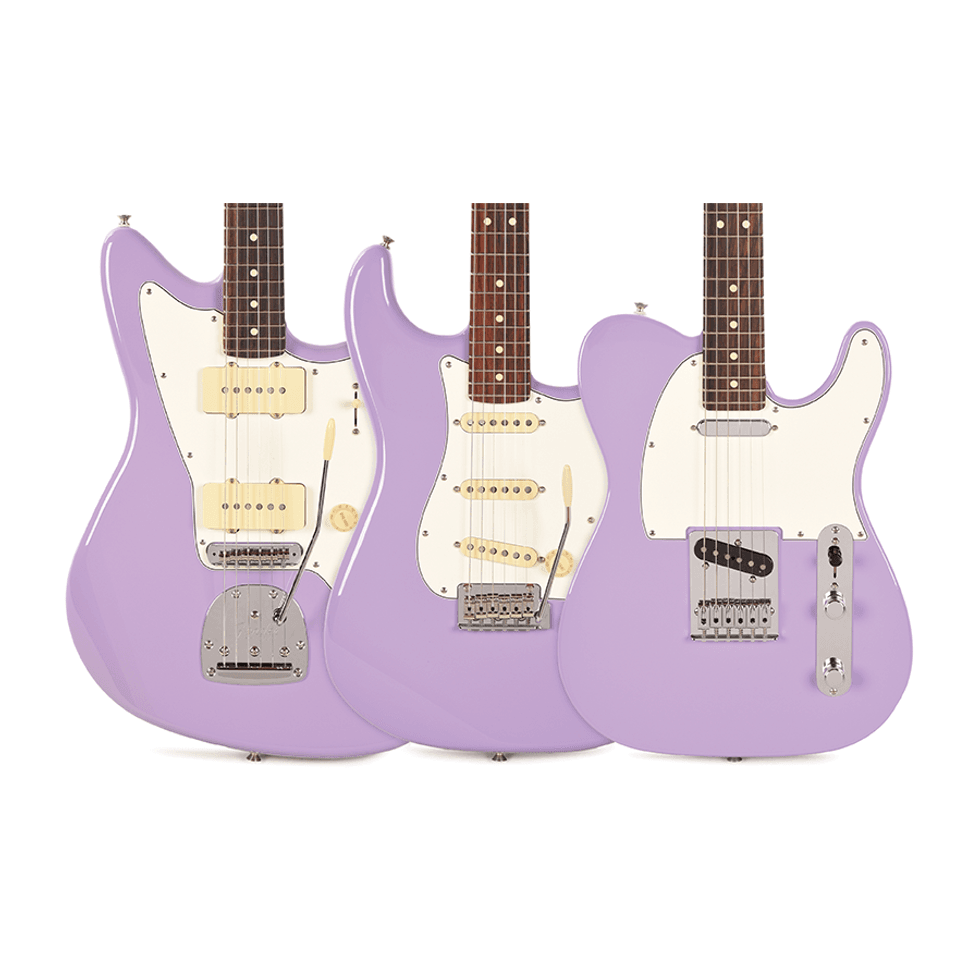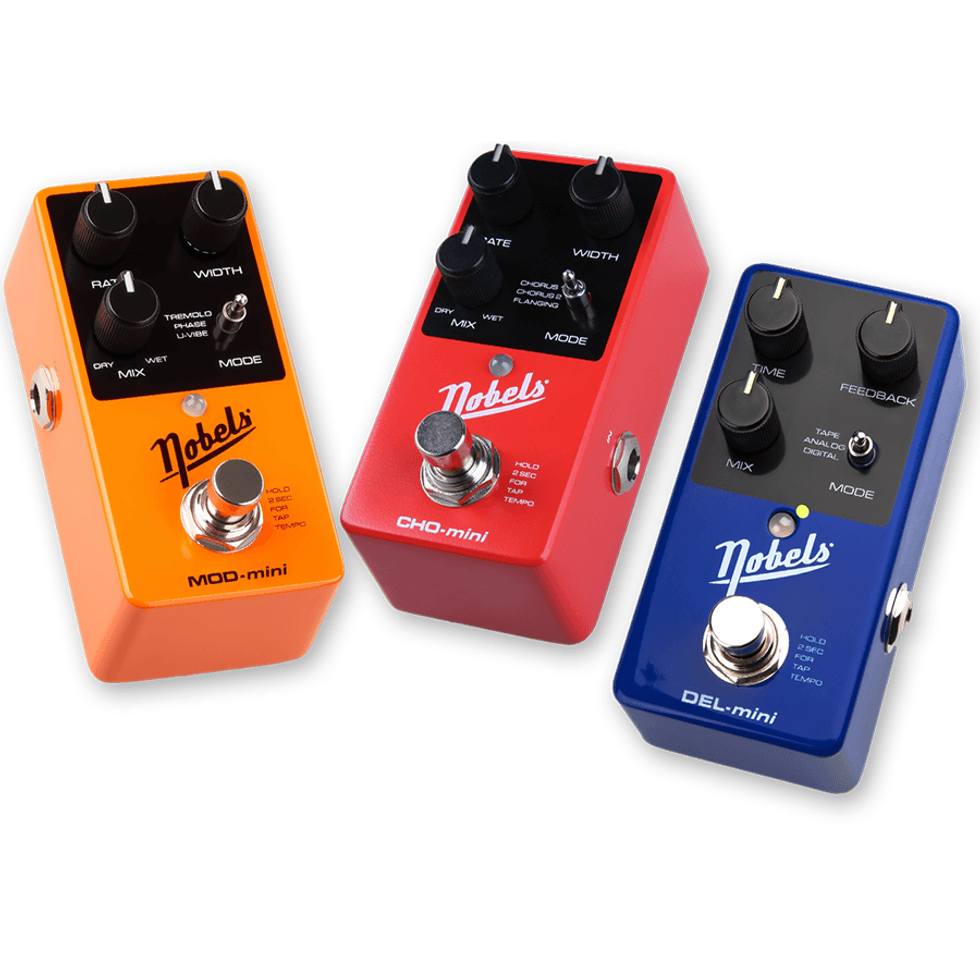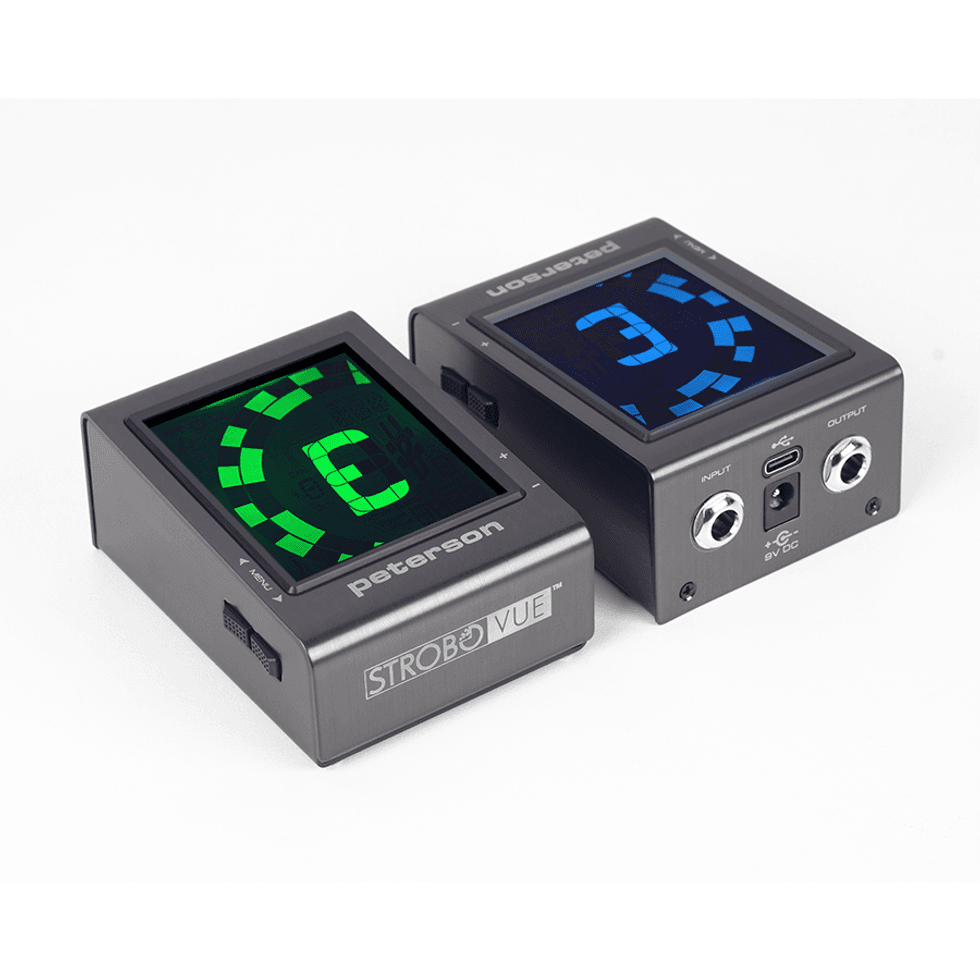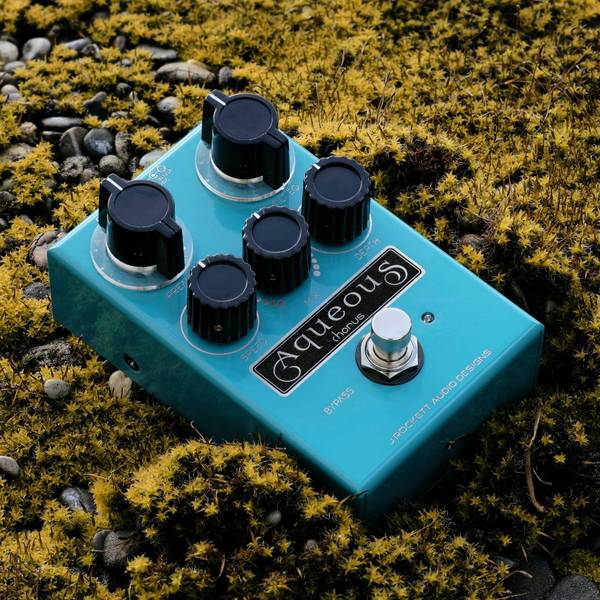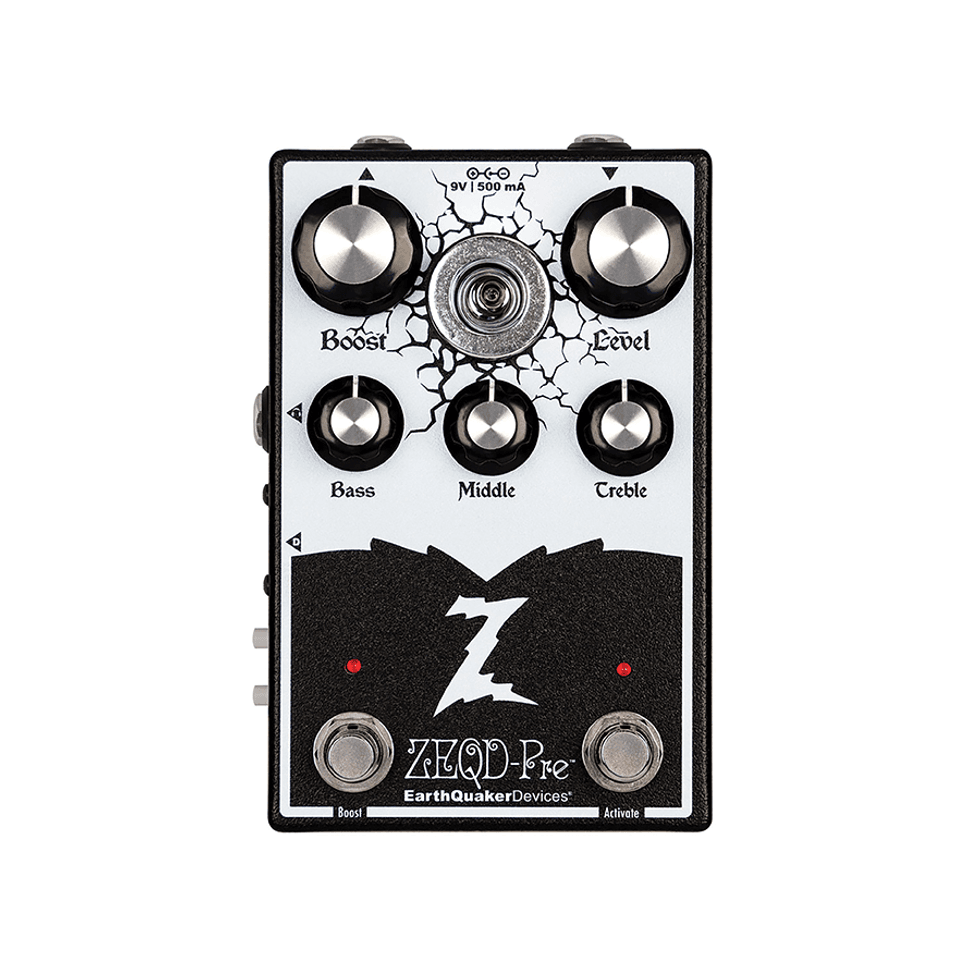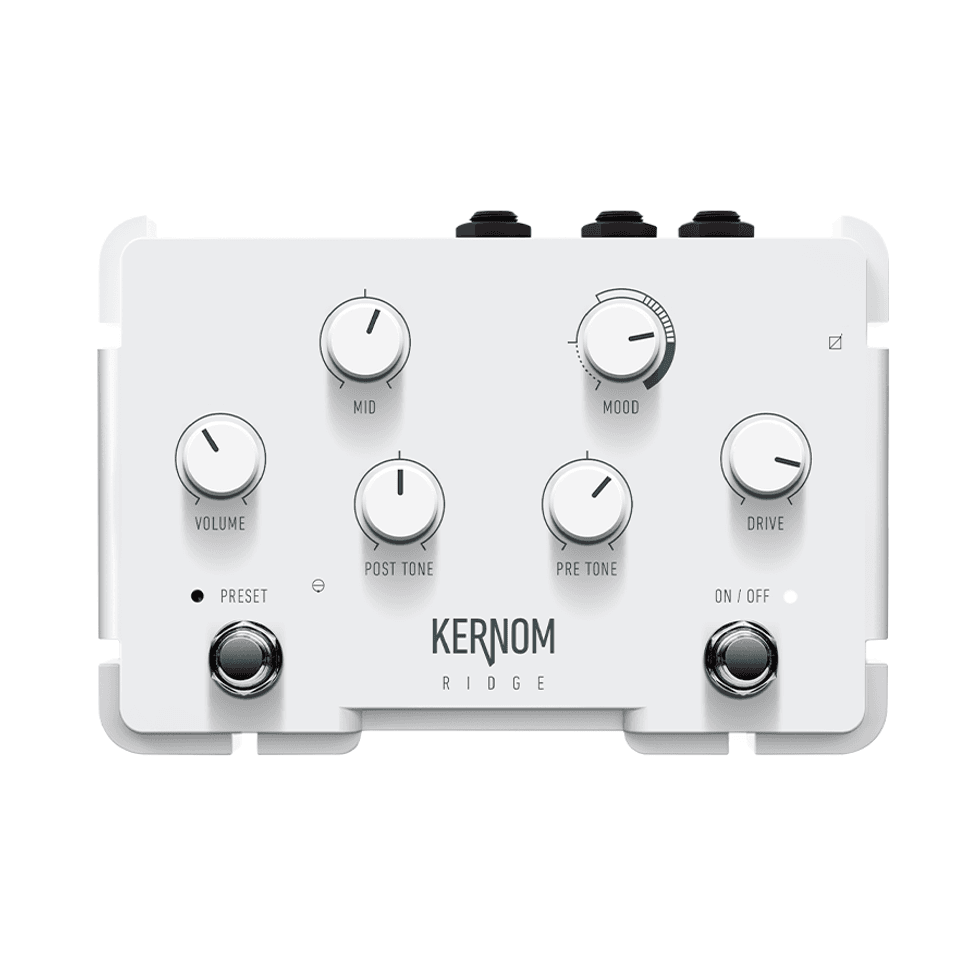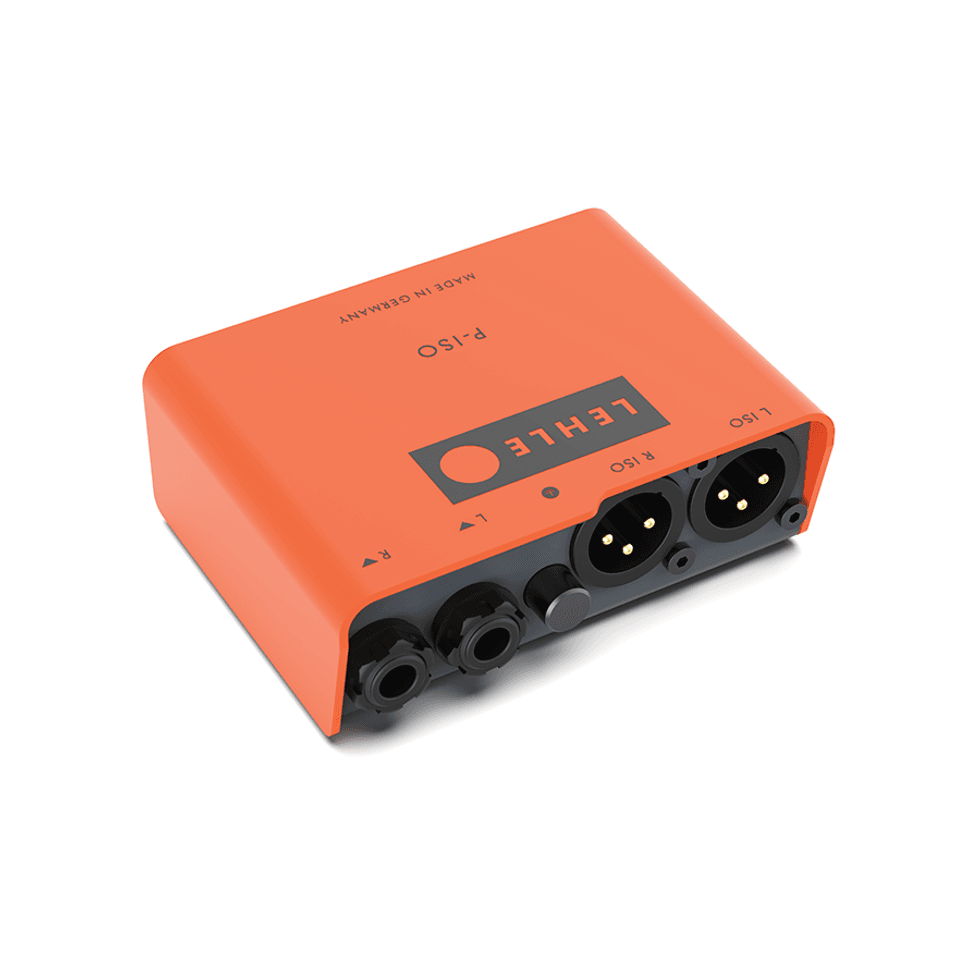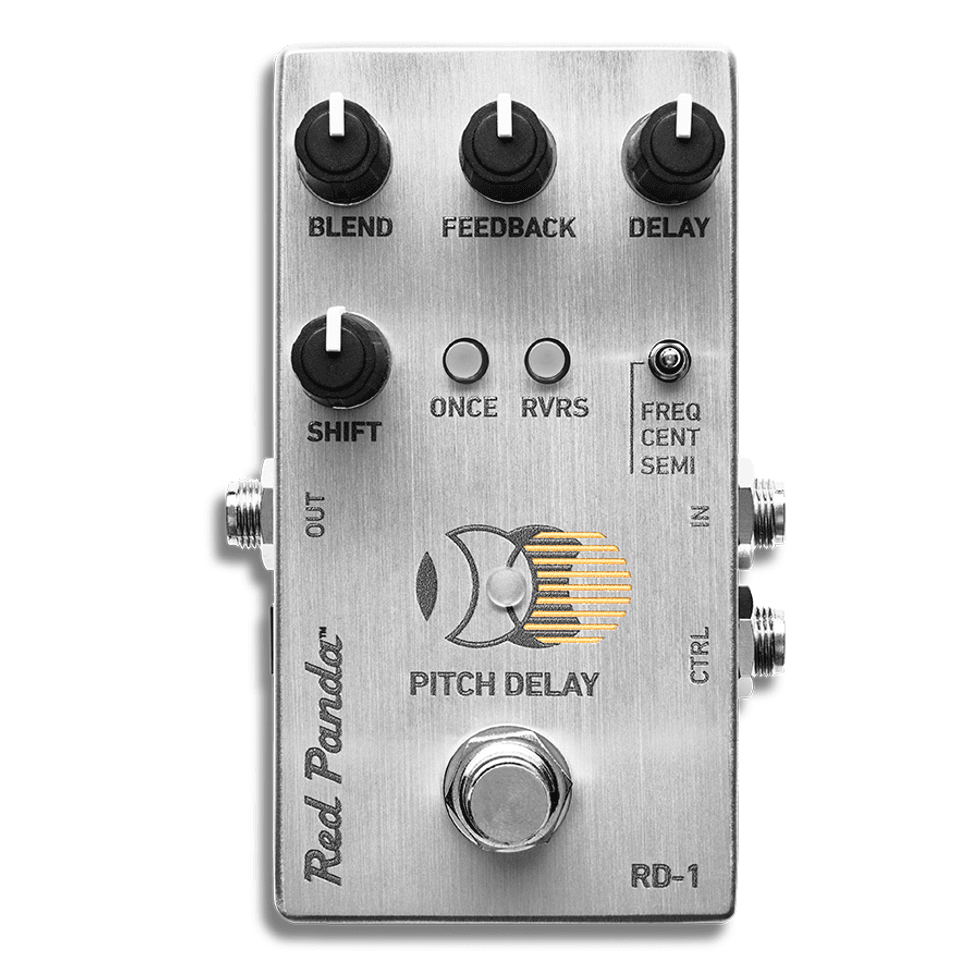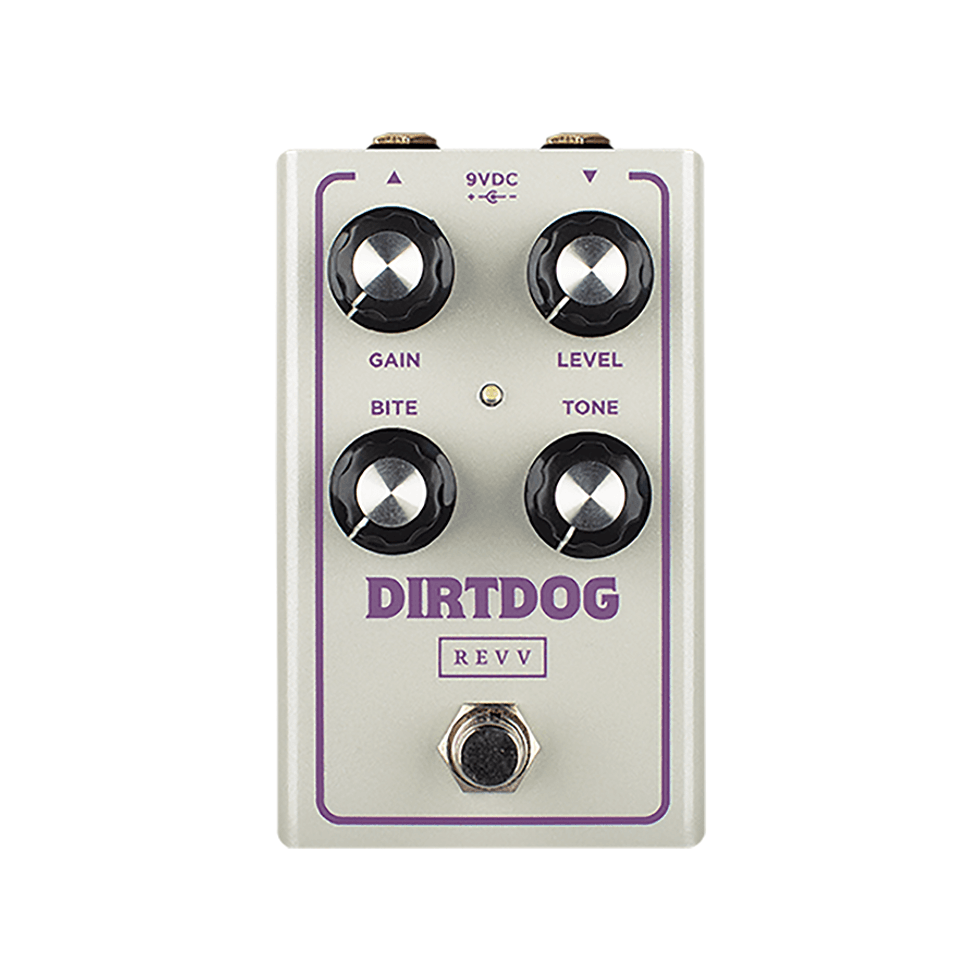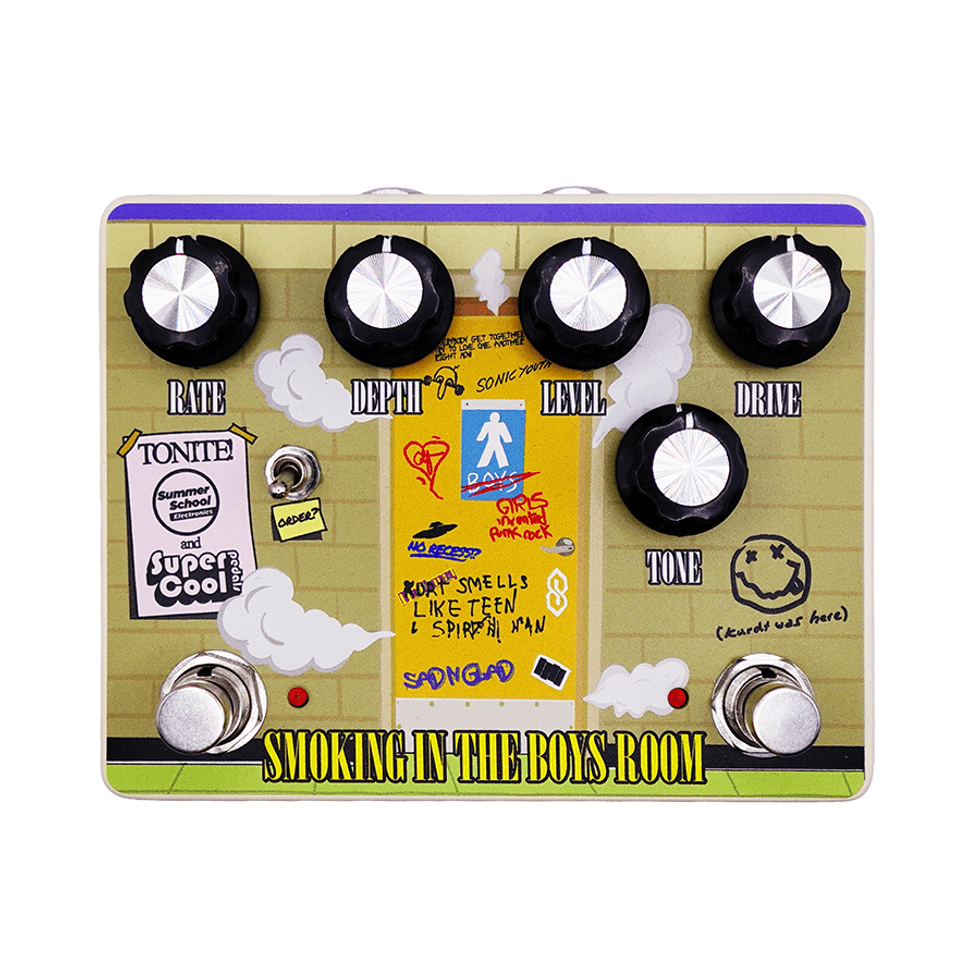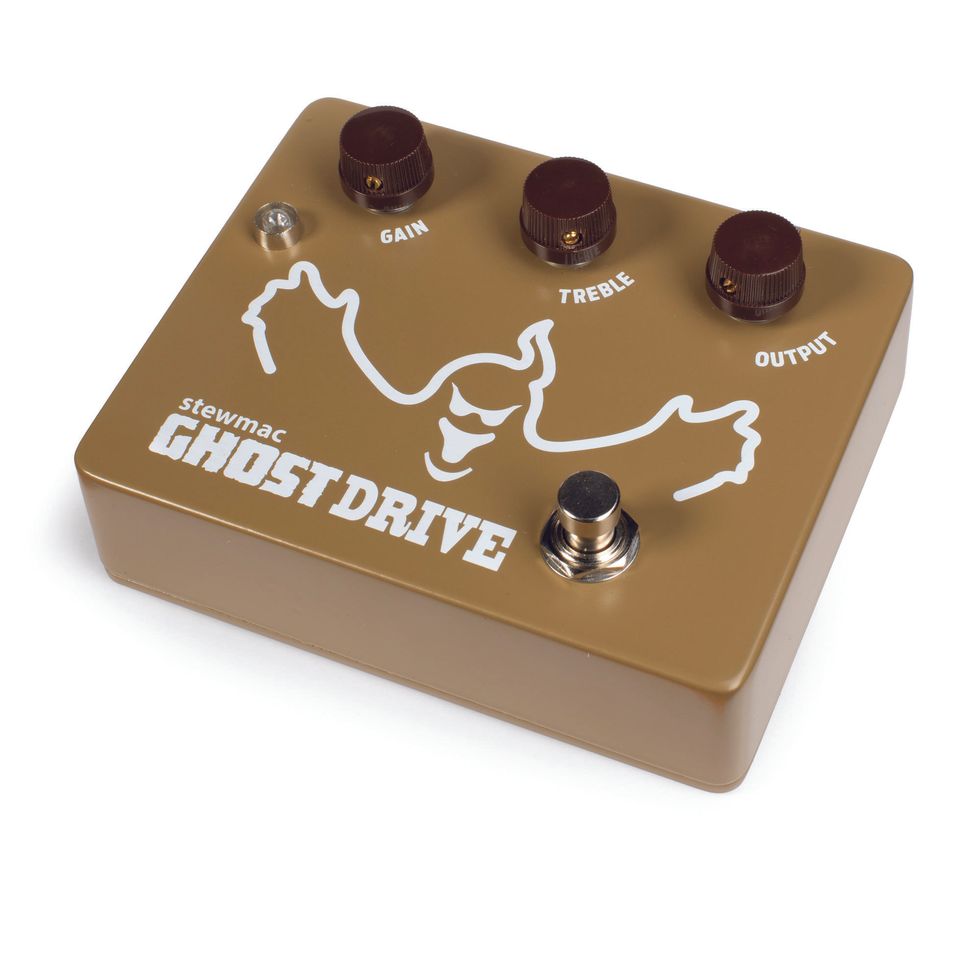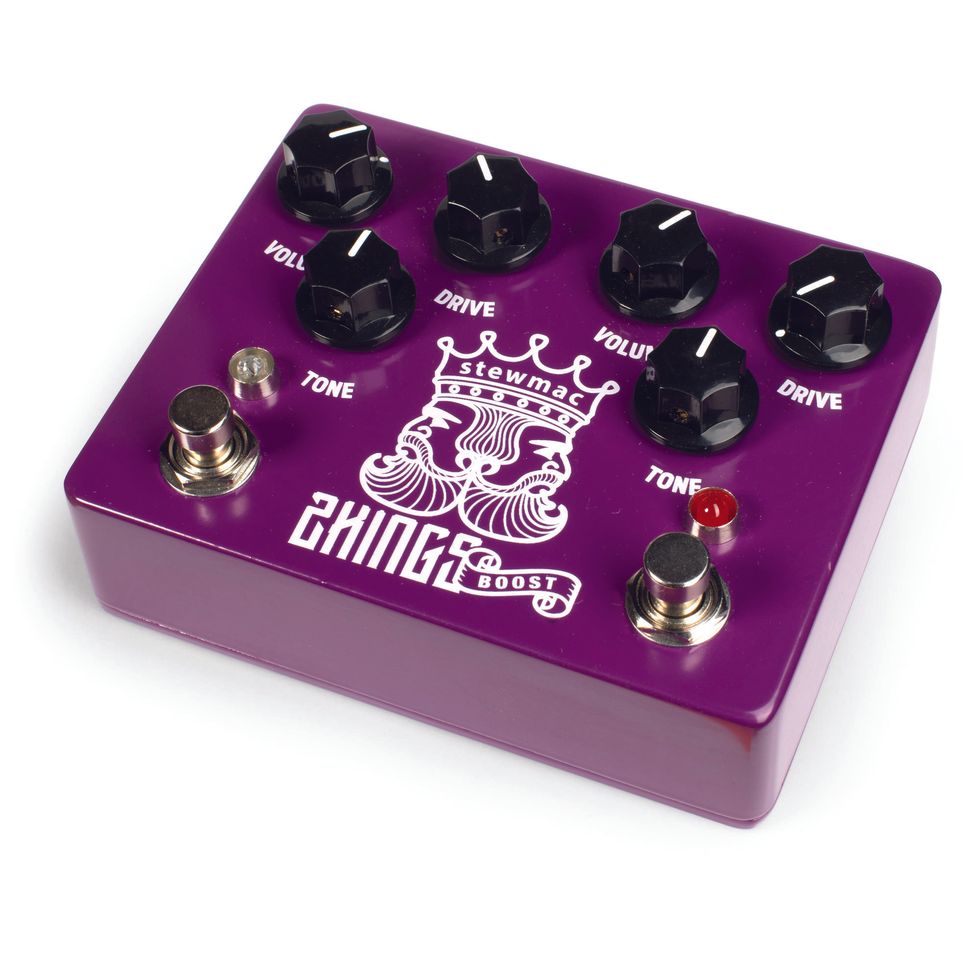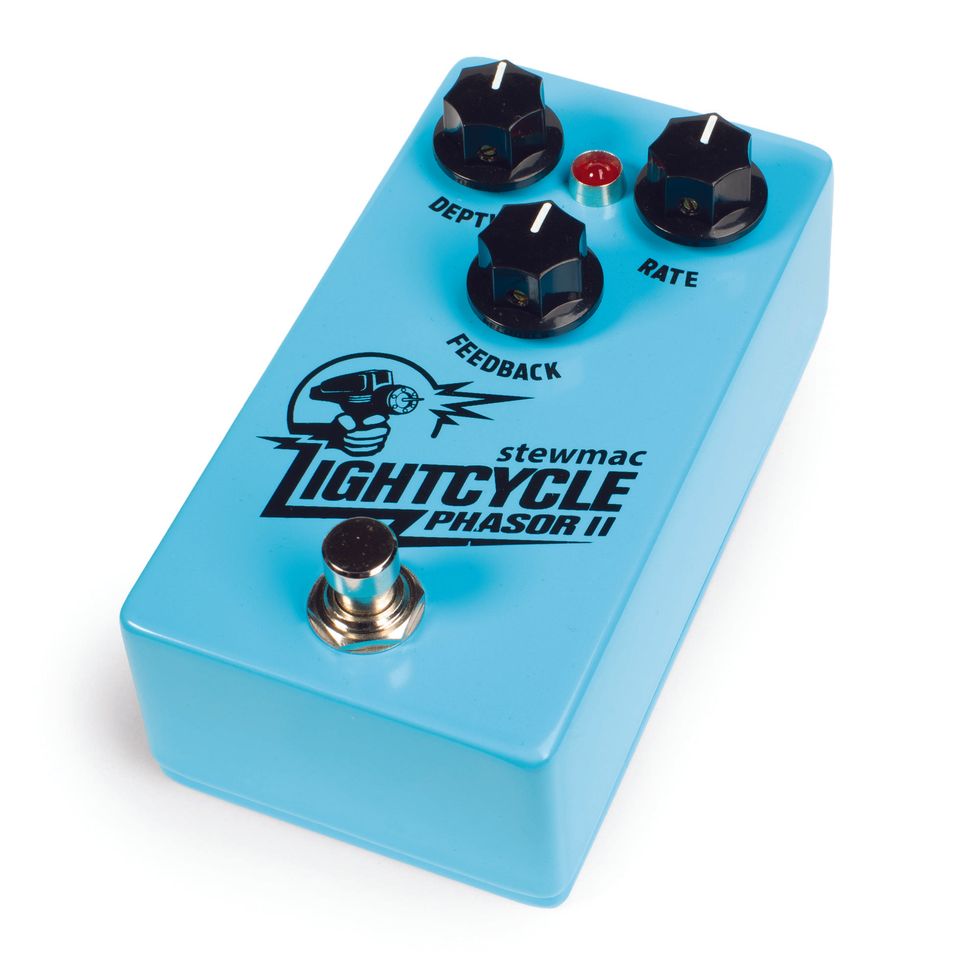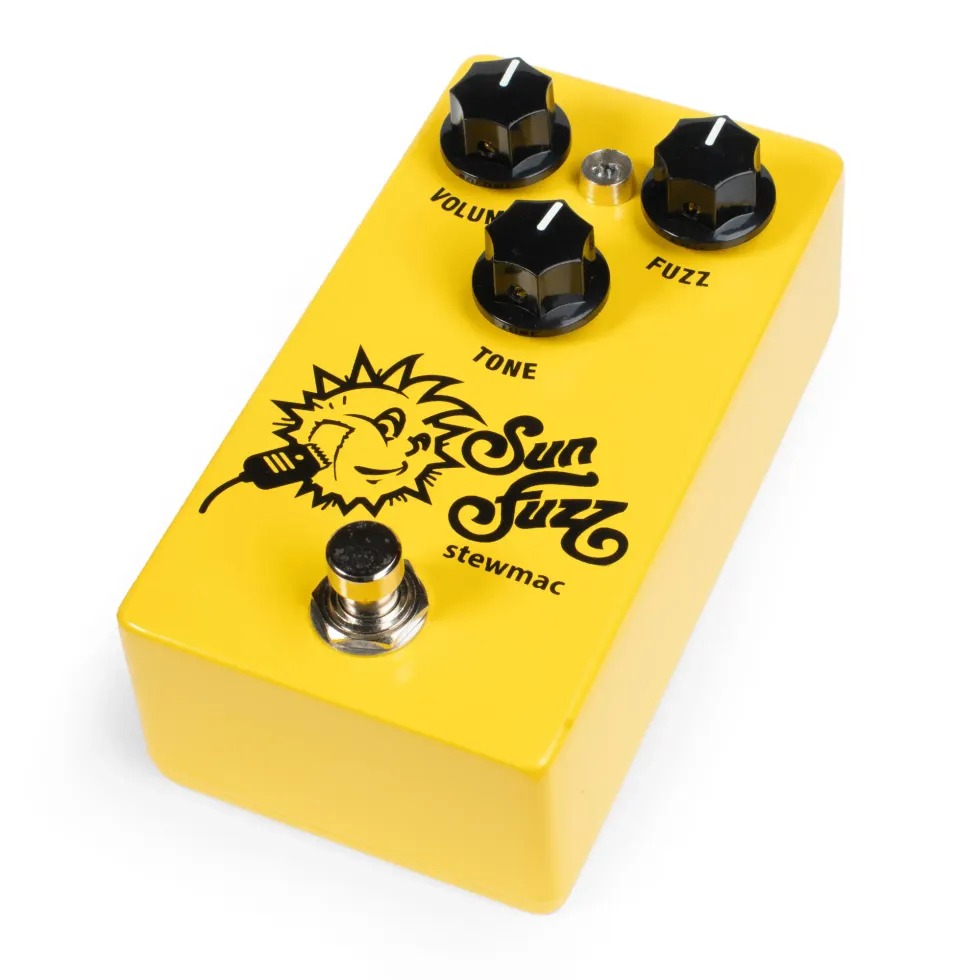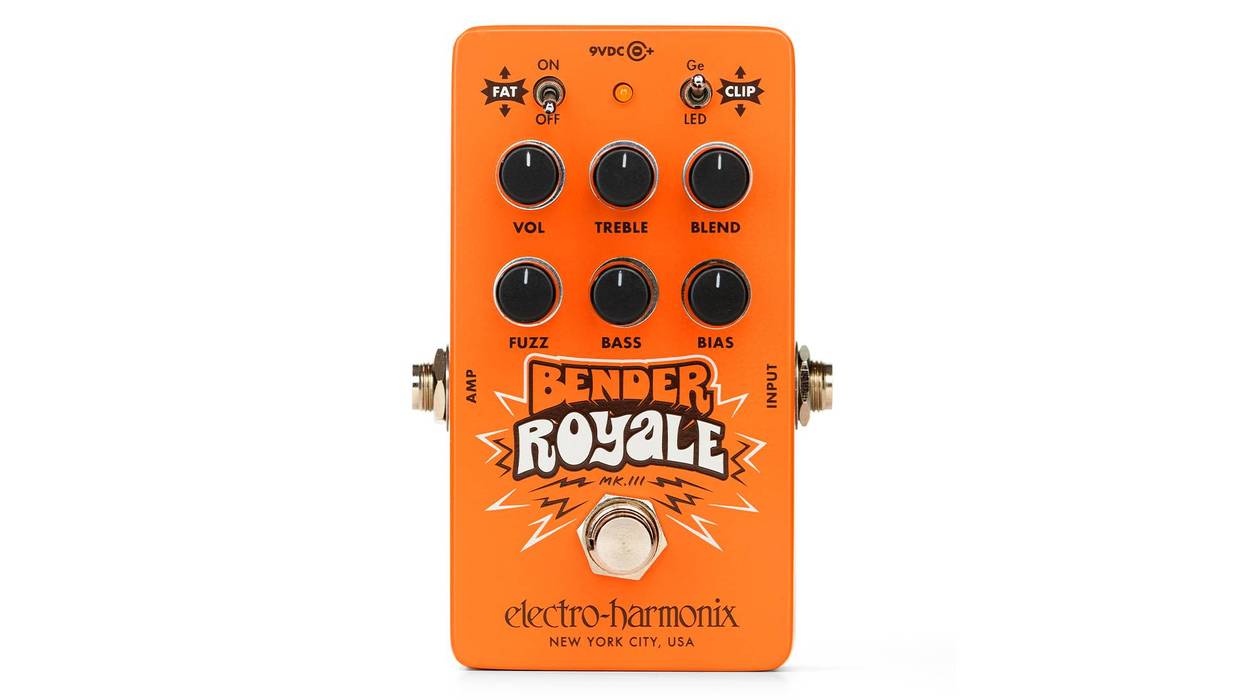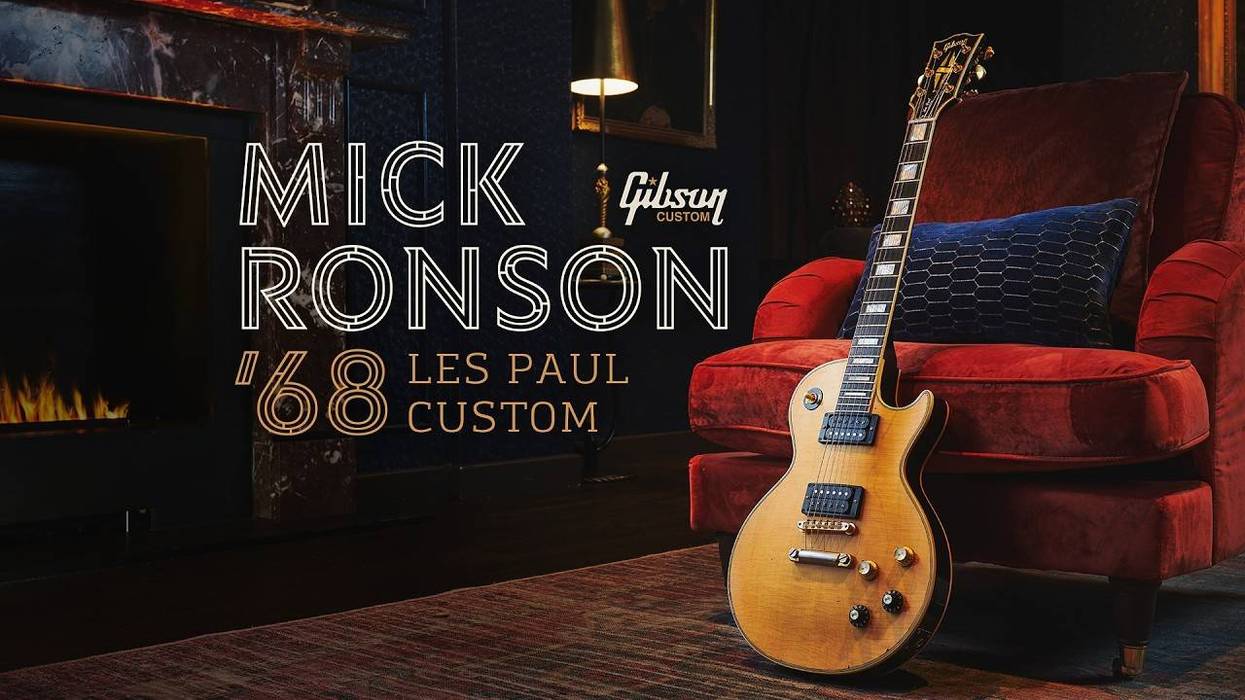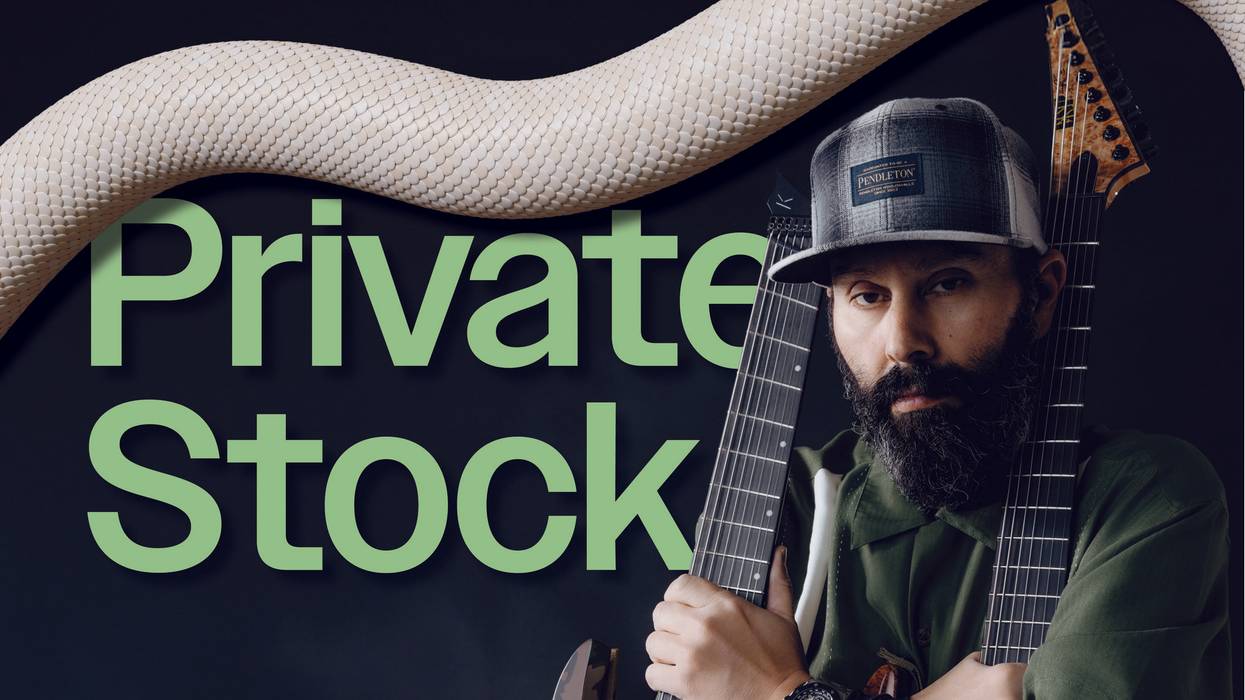| Somewhere between the successes of big-time gear manufacturing and smaller-scale niche demand is a middle ground where things can get complicated. Some boutique builders struggle to maintain boutique quality and/or cred when product orders skyrocket to the point of necessitating larger production methods. Others find themselves on the defensive with long-time customers after getting bought out by a big company. Quite frankly, making it big is tough when people value your smallness. |
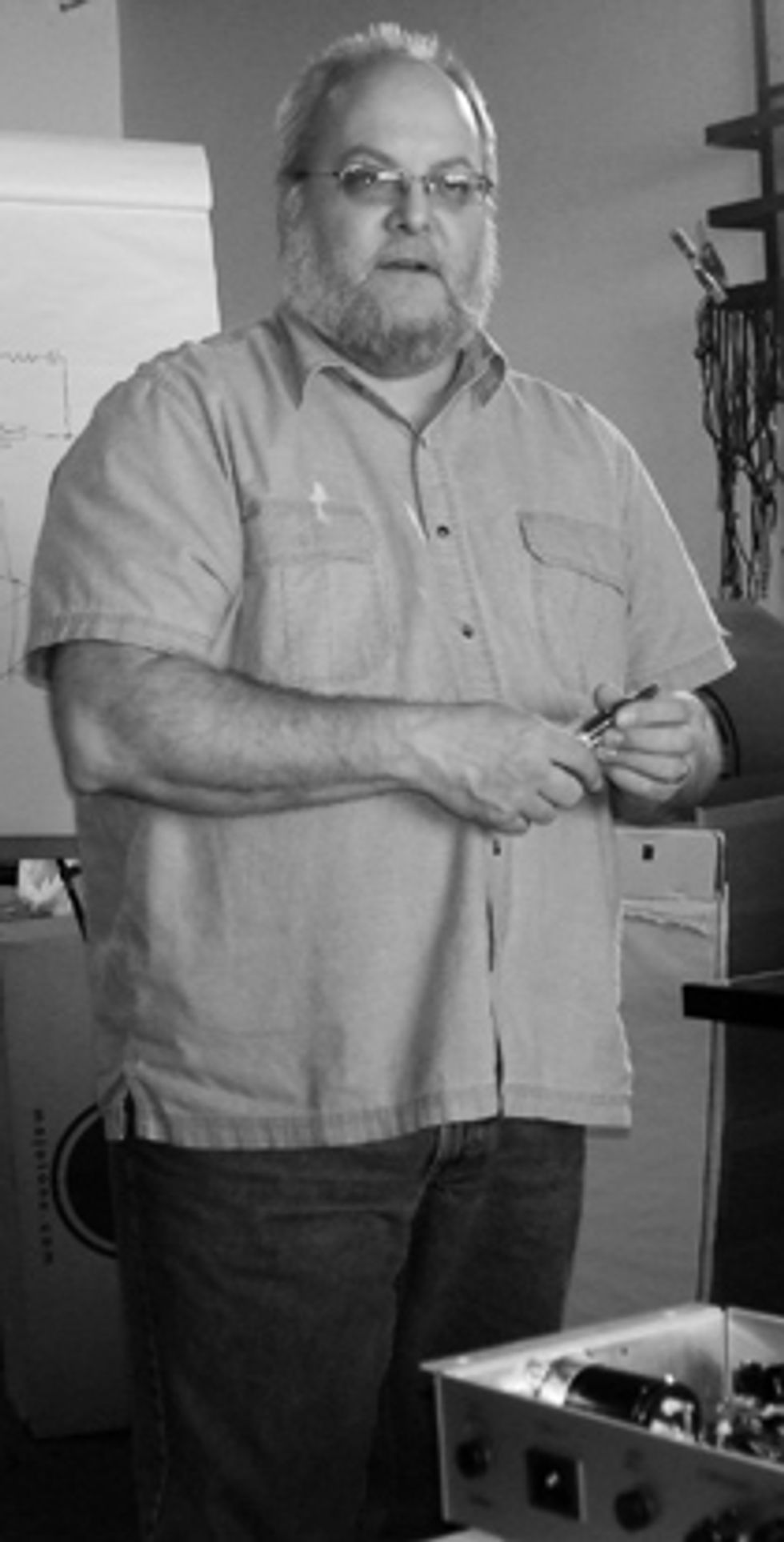 Bruce Egnater is the rare boutique builder who has found a way to harness some
pretty big winds without capsizing the handmade craft that got him this far. Long
sought after by pros with an affinity for his tone and ingenuity, Bruce’s experience
as a modder, designer, educator and all-around tonehound has taken him
from being a popular underground figure to having his proprietary module design
used in Randall’s high-end amps and his Tourmaster line sold in Guitar Centers
across the country.
Bruce Egnater is the rare boutique builder who has found a way to harness some
pretty big winds without capsizing the handmade craft that got him this far. Long
sought after by pros with an affinity for his tone and ingenuity, Bruce’s experience
as a modder, designer, educator and all-around tonehound has taken him
from being a popular underground figure to having his proprietary module design
used in Randall’s high-end amps and his Tourmaster line sold in Guitar Centers
across the country.What some people don’t realize is that Bruce still hand-builds the Modular Series in a little shop in Berkley, Michigan, and he still offers seminars where you can build a tricked-out, JTM45-inspired 50-watt head under his watchful eye. He’s still that boutique guy with his hands in amp chassis all day long, taking calls from pros on the road and basement-dwelling tone seekers searching for guidance with their own mods. He’s constantly experimenting and somehow or another, his ideas are always of the “Jesus, why didn’t I think of that?” variety.
We recently caught up with Bruce and his right-hand man, Jeff Hilligan, for a status check on all things Egnater and a preview of what’s to come.
Want more Egnater?
|
Jeff: In the late eighties you could go to the Detroit Guitar Show at the State Fairground and you’d be walking around with some piece of gear and somebody would say, “Take that to Bruce Egnater and he’ll make it rip.” That’s how I actually met Bruce – I was told to take a piece over to him. We always threw ideas at each other and now it’s come to fruition.
Bruce, how did you get into amp building?
Bruce: I was a stupid kid who just took stuff apart. My brother used to be into hot-rods and we would rebuild ’57 Chevys in the backyard. I was just that kind of kid that couldn’t leave stuff alone. When I was nine or ten years old I used to hang out with my grandfather, Grandpa Kreske. We used to go fishing and he had this machine that made sinkers in his basement. We would melt lead in the basement and the fumes would be killing us – that’s probably what happened to me. [laughs] This was 45 years ago. He said to me, “Be the guy that makes the shovel, not the guy that digs the ditches.” I think it stuck with me for some reason.
Then, the CEO of another company I worked for said to us, “Innovate or die.” What that said to me is, “Okay, you’ve got to be different.” You can’t just copy other people. Another guy at another company said we needed to be, “the biggest, the first and the best.”
Obviously we’re not the biggest and we might not always be the first, but we certainly try to be the best and we’d like to think we are the first, at least with the Modular stuff. There are people who influence you and I believe you act on it unconsciously sometimes.
You guys stay busy focusing most of your time on three projects – the Tourmaster line, the Modular series and amp building seminars.
Bruce: We are busier than we could ever imagine. It’s absolutely insane, but it’s cool because it has forced us to be more…
Jeff: …focused!
Bruce: It’s caused us to become more streamlined. We’re going to be able to produce [the Modular Series] in a more regular manner and we are actually discussing a few secret projects for the future. Everything is expanding and growing. We are finally in control of that out-of-control situation.
Jeff: The Modular stuff is doing great and the Tourmaster line has absolutely gone
through the roof.
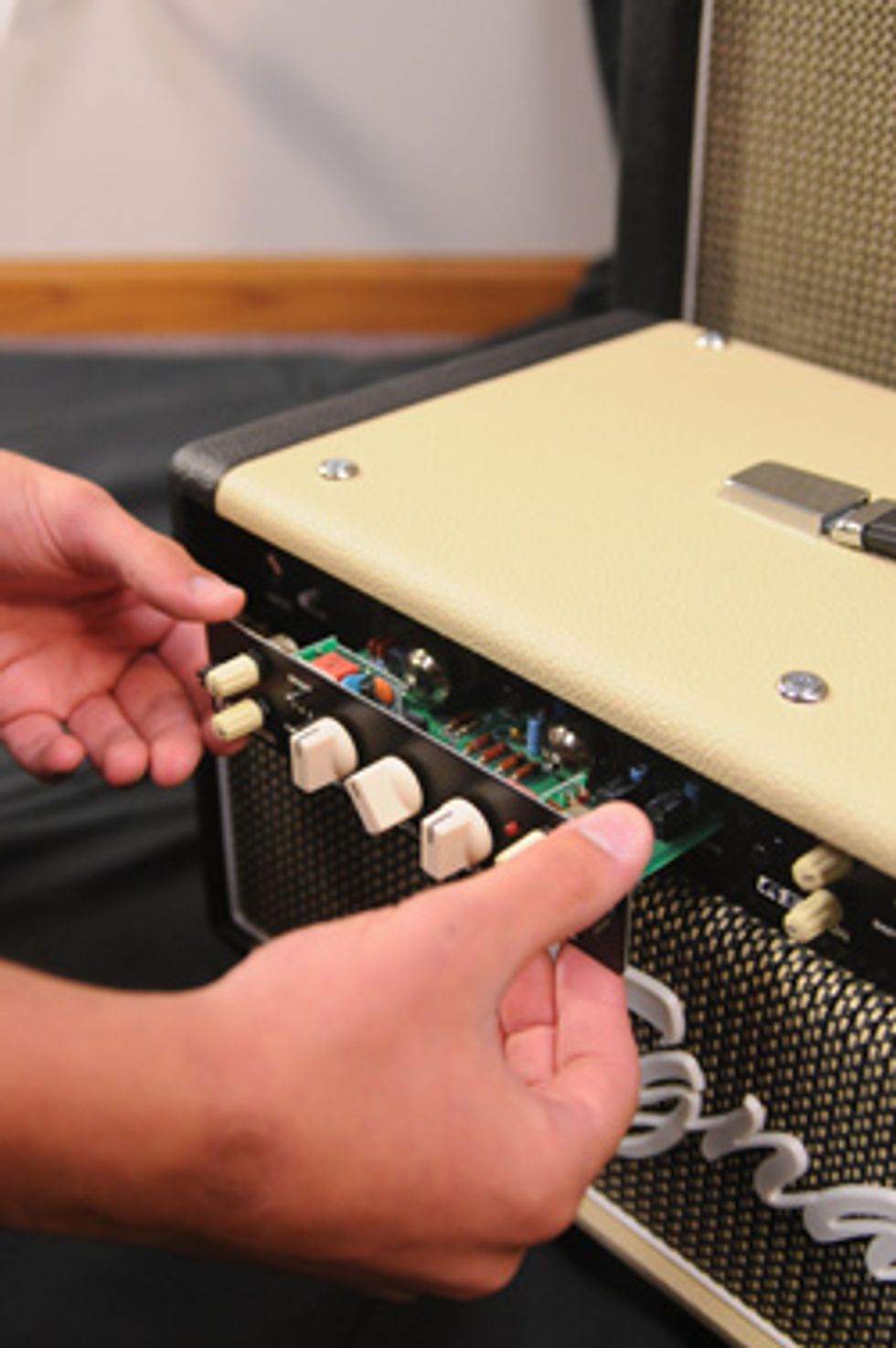 Let’s back up for a second for readers who aren’t familiar. The Modular Series is what you guys make by hand in Michigan – it involves a boutique
amp head with interchangeable preamp
modules. You can buy a Tweed module,
a VOX-inspired module, etc.
Let’s back up for a second for readers who aren’t familiar. The Modular Series is what you guys make by hand in Michigan – it involves a boutique
amp head with interchangeable preamp
modules. You can buy a Tweed module,
a VOX-inspired module, etc.
Jeff: We are confident about what we think is a tried and true module. We don’t want to get into the realm of making a Diezel duplicate or a VHT duplicate or whatever. We don’t want to just repackage something. We’re trying to standardize and give people what we feel are the true fundamentals of good tone. We’re going to ship you what we know is the most legitimate and solid representation of an all-tube design when it comes to whatever module you choose – Bassman, Twin, VOX, etc.
Bruce: When we designed the TOL-4 Channel MIDI-switching [model], we thought it was the end all, nothing-could compare amp and before we knew it people were asking us to modify them to sound like something else. It eventually developed into the Modular Series from us modifying our own stuff and saying, “There’s got to be a better way to do this than to just physically modify every amp in the world.”
Jeff: It makes perfect sense that you just take out the part of an amp that is 95 percent variable and make it whatever you want. You’re not getting an amp that Bruce loves the sound of and we have to make everybody like this design. Instead, we picked neutral and then you get to color it.
How many modules do you offer right now?
Jeff: Ten, from classic Fender to classic Marshall to Bruce’s take on a couple of Marshalls. There’s an old school TOL series, our EG3/4, and then there’s the more modern EG5 – the most versatile high-gain module in our arsenal. I swear I played “Lay it Down” by RATT 600 times trying to achieve the midrange that DeMartini had back in the eighties. We try to run the whole gamut – the real clean stuff of a Fender Twin to a Deluxe to a Bassman and then a VOX. We tried to cover all the classic stuff and then just tweak whatever we wanted to make it a little more modern or a little more heavy metal for certain people. We feel that the ten we have right now are really all we need.
How did Randall begin using your modular technology?
Bruce: We have a patent on that plug-in preamp Modular thing, as it applies to guitar amps. The first time we showed it at NAMM eight or nine years ago, we had a preamp, a power amp, a speaker, two chairs and a guitar. That was our NAMM booth. A lot of people came by and looked at our stuff – Crate, Fender, all the usual companies – and they said it was kind of cool but kind of weird. Randall came by and said, “This is the coolest thing we’ve ever seen! How do we get involved with you guys?” We licensed the Modular technology to Randall and they in turn have their own versions of everything built. They have the exclusive license to do that.
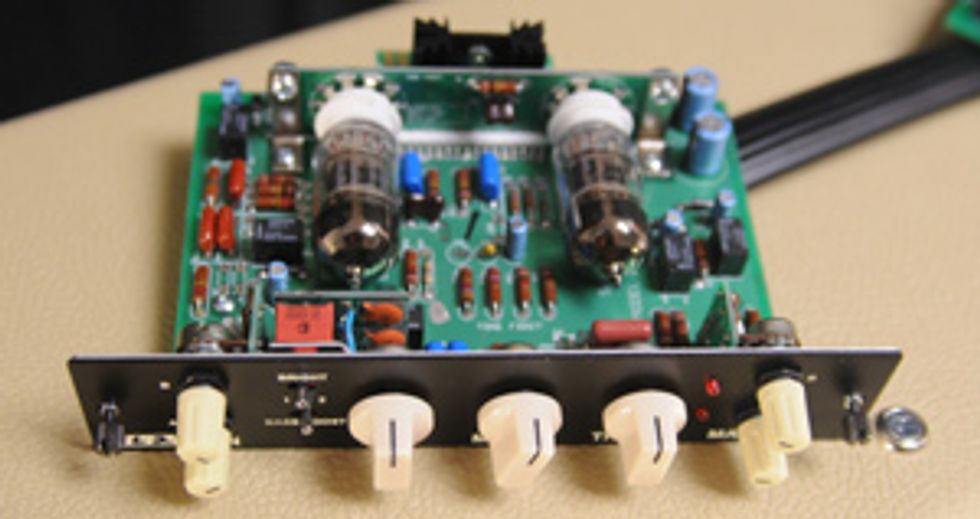 The Egnater SL2 module features JCM800-inspired tones |
Jeff: Absolutely. I just finished up doing some stuff with Ty Tabor of King’s X; for all these years he’s really struggled to achieve his old Gretchen Goes to Nebraska tone, which was from this nasty monster of a rig with all this crazy stuff that often didn’t work. We were able to give him four discrete modules – two specifically gave him exactly what he’s been missing all these years. He’s so excited. The band is pulling stuff from the old days because he’s actually got the tone he wanted from back then.
With this technology Kirk Hammett can have his [Randall] modules and George Lynch can have his [Randall] modules from all the eras. We can do that for anybody. You remember this from the eighties and you want this from the nineties; you don’t have to be a high profile player.
Some people might be confused when you refer to yourselves as the “little guy.” Egnater stuff is now sold in Guitar Center. How did that come about?
Bruce: They hunted us down. They saw the need to expand their boutique market and wanted Egnater to be a part of that. We’re clearing up one misconception in the music community in general – and that is the meaning of boutique. Boutique really means innovation. Boutique doesn’t mean a high-dollar, made by one guy item.
They met up with us through some connections we had and found that we weren’t crazy or egotistical or anything. We’re just normal guys who know how to make cool gear. So, we design innovative products and sell them to Guitar Center. We come up with a new design, build it, present it to them and we work together to get it just right. So far, it’s been great.
| We’re clearing up one misconception
in the music community in general
– and that is the meaning of boutique.
Boutique really means innovation.
Boutique doesn’t mean a high-dollar,
made by one guy item.
|
Jeff: We might not be the “little guy” anymore but we still think that way. We want to grow Egnater and have taken all of the steps to produce our gear in higher quantities without losing what got us here in the first place. Guitar Center sells Egnater because we bring them gear that is truly innovative like the Power Grid on the Tourmaster and the tube mix and scalable wattage knobs on the Rebel. These are real innovations that actually work – not just repackaging something that is handwired with Mogami cable.
Bruce: So there is no misunderstanding, Guitar Center does not own Egnater and we’re not under any licensing agreement. It’s nothing like that. We are just like any other vendor that sells them gear. They simply have the exclusivity on non-modular Egnater amps in the U.S. We work closely with them because it’s kind of cool and we are both enjoying it.
Bring people up to speed up here; the Tourmaster series is a pretty boutique-y amp that gives you control over variables that, for the longest time, you didn’t have control over, correct?
Bruce: When we started the project with Guitar Center they asked us specifically for a four channel amp that was innovative. So we incorporated as many cool and useful features as we could and avoided putting stuff on there that didn’t make sense. Even though the Tourmaster has a bunch of knobs, everything on there is useful, in a practical way.
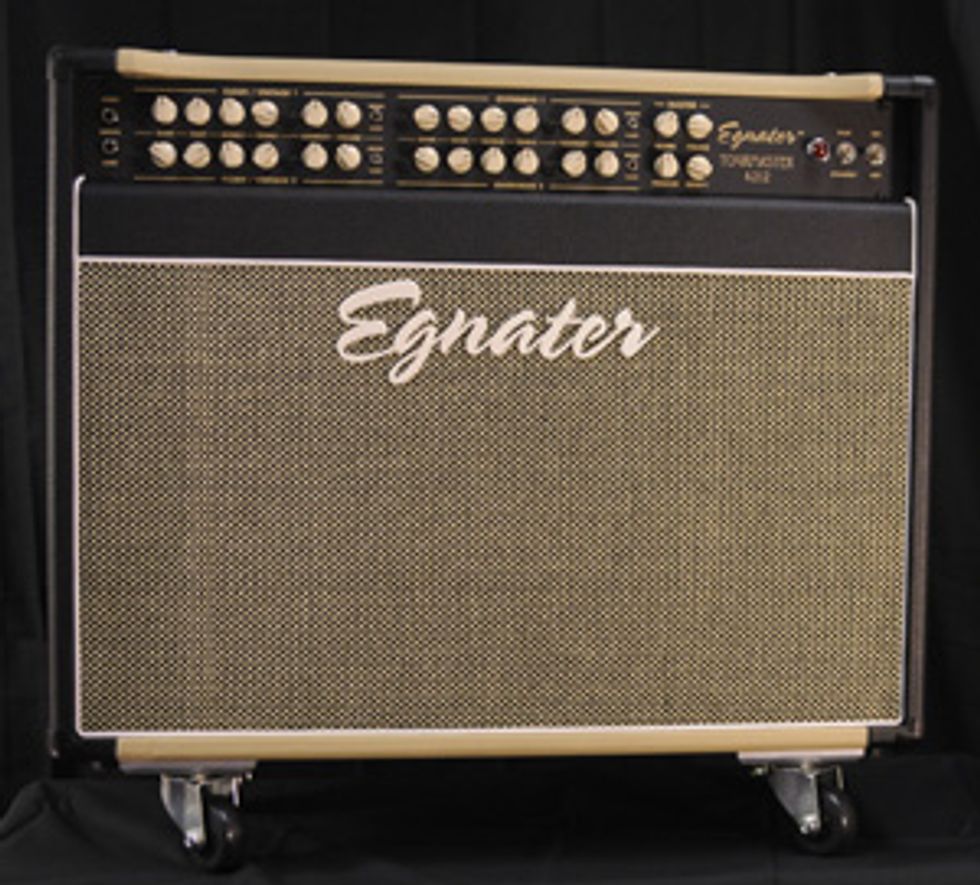 The Tourmaster has four channels; clean,
crunch, overdrive and way over the top.
The Power Grid allows you to set the
power output individually for each channel
and switch between them so you can
have, for example, 100 watts on the Twin
Reverb sound on the first channel and 10
watts on the second channel as a Deluxe.
One of the other things is the cost. It sells
in the store for $1400 – a four-channel, all
tube, pretty darn cool head. It is made by
a well-respected contract manufacturer
under our truly careful supervision. If
that were made by hand here in our little
shop, it would be about a $5000 amp
because of the manufacturing cost differences
between “made in China” and
“made in U.S.”
The Tourmaster has four channels; clean,
crunch, overdrive and way over the top.
The Power Grid allows you to set the
power output individually for each channel
and switch between them so you can
have, for example, 100 watts on the Twin
Reverb sound on the first channel and 10
watts on the second channel as a Deluxe.
One of the other things is the cost. It sells
in the store for $1400 – a four-channel, all
tube, pretty darn cool head. It is made by
a well-respected contract manufacturer
under our truly careful supervision. If
that were made by hand here in our little
shop, it would be about a $5000 amp
because of the manufacturing cost differences
between “made in China” and
“made in U.S.”
For all the Guitar Center products we have set up special, sophisticated test procedures with documented results for every amp. So we can track every single amp using serial numbers and can pull out all the information and test results for any specific one. When they come to California to get distributed, we re-test them. We actually fly out to California and re-test every single amp just to be redundant and verify that everything is up to our standards. It’s not about making something cheap; it’s about making it affordable and really good as opposed to cheap. It’s about making boutique quality amps available to a lot more players that otherwise could not afford it. We wouldn’t be doing this, if we weren’t 100 percent confident that the quality was up to our standards. So far it has been truly superb.
Will other, larger-scale Egnater products be available only at Guitar Center?
Bruce: We’ve got a whole lineup of great products lined up for the next couple of years. In the next month or so we’ll introduce the Rebel-20. This is a 20-watt amp with some really innovative features like a variable wattage knob that lets you scale down the wattage to 1-watt and a tube mix knob that allows you to blend between the pair of 6V6s and EL84s [both pairs are in the amp]. This is a little amp but it’s not a toy. The Rebel is going to be huge. Literally everyone that has played one wants one. Early next year we will be launching the Renegade line which is a 50-watt two-channel amp and combo version with some never before seen features. We also have some other secret stuff that is down the line that will grow the Egnater line.
What other new Egnater products are on the horizon?
Jeff: One new product coming with our Modular line is the E2. Essentially it is a two-channel, stand-alone preamp that has two slots for modules. So it’s not really anything other than, let’s say, half of our M4s, but the innovation is that you can use that in coordination with any of our Modular stuff. So, your Mod 50, which is a two-module head can now have two more modules added to it, so you have an eight-channel amp, fully MIDI at any time. The beauty is that we’re going to wet the beak of the guy that absolutely loves his Bogner Ecstasy, but also wants a VOX and a Bassman. Plug our E2 into the serial loop of his Bogner and it’ll access our modules when he calls it up.
So, you’ll be offering Egnater amp tones to people as if they were pedals, without even selling them an Egnater head?
Bruce: You could get this little two module thing and patch it into the series effects loop with just a couple of cables. It has a little built-in switching thing, so you could add two of our Modular channels to any amp and footswitch between them with a MIDI pedal.
Jeff: It’s truly for those purist guys who, let’s say play a Victoria or whatever type of amp with an effects loop and want to try out stuff, but aren’t willing to make the whole jump. They can add to their arsenal without ponying up for another amp. It’s just a single space rack that they can plug right into their amp.
What was the impetus for this idea?
Jeff: The idea started with Keith Howland of the band, Chicago, a life-long Egnater user. He flew to the Today Show to play one song, but had to play it through a rented JCM900 that sounded like crap [due to wear and tear]. He had to take a huge pedalboard to get close to his sound. Soon, he’ll be able to fly to New York with this little preamp in his backpack and have a VOX and a plexi – he can plug it into the rented backline and have the tone he’s always used, even though he’s using a rented amp.
What’s the ETA on that?
Bruce: The prototype for the E2, probably mid-September. But it’ll be a while before production and all that. They’ll be made here, as that’s one of our Modular things.
You guys have so much going on. How will you maintain the corner shop quality you’re known for?
Bruce: It’s more about dividing duties among the people we have, and we have other people we can call in for help at any moment if we say, “You know what, Arthur, do you want a full-time job?” They’ll be able to walk in here and do what they do. It’ll be a manner of growing slowly and frankly, not losing control. Stopping the madness. Sure it’s a little bit of a scary thing, but it’s a good thing in a scary way.
Jeff: One thing we do now is we’ll just stop accepting orders to get balanced. We did that recently and people unanimously said, “Thanks for the open communication.”
Bruce: No one canceled.
Jeff: They are willing to wait and when the restart day comes, they place their order. We don’t have to get inundated with all the stress for not being ready for all of it. Bruce and I are really honest that we’ll stop the madness when we have to stop the madness, recollect ourselves and make this thing work right, rather than just try to shove stuff out the door as fast as we can.
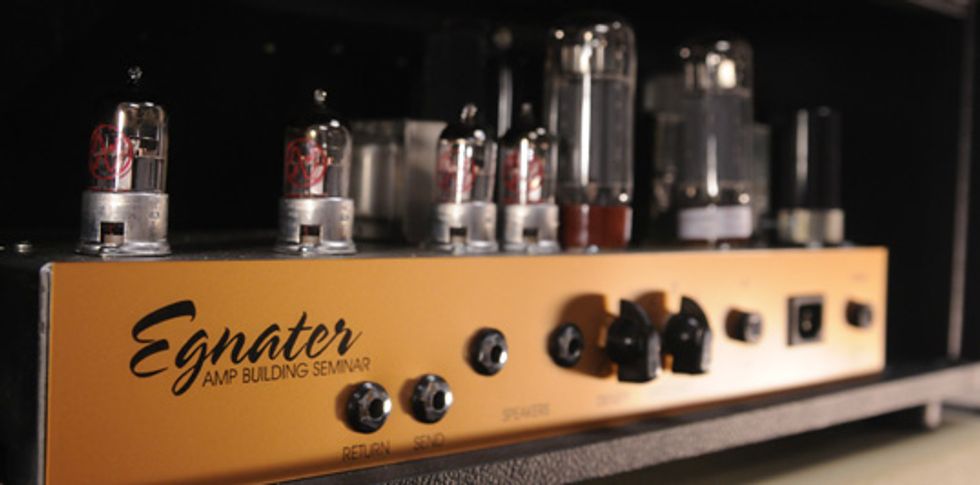
Speaking of demand, your amp building seminar remains popular.
Bruce: We stop those in the summer because nobody wants to sit in the heat in here – myself included – but we plan to start up again in September. We really like doing that sort of thing.
Jeff: We’ll teach them how to build Bruce’s idea of a hot-rodded Marshall amp. That amp class has spawned its own beast. We have a tremendous amount of people who don’t want to attend the class and could care less. They just want the finished amp. Bruce and I are actually going to, depending on when we can fit it into our schedule, start producing the amp class amp as an Egnater-built product you can buy.
In an industry known for guarding secrets, the amp class seems like a surprising thing to offer.
Jeff: Bruce has always said that stripped down to the simplest form, it’s just a box of parts. He says, “When I die, it all goes with me, so I want to pass on my recipe to everybody so everyone gets a taste of it. I won’t be the lunch lady who holds the secret recipe and not share it with anybody.”
Egnater Amps
Egnater.com


